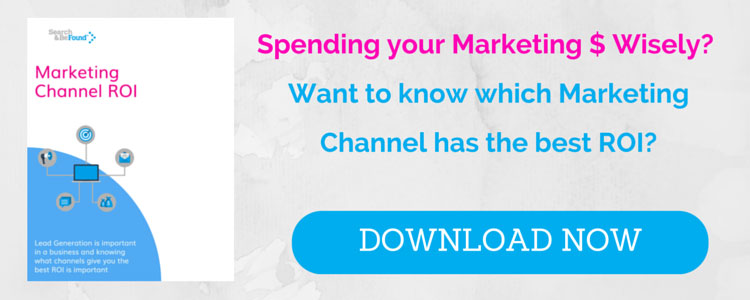This is a difficult body of words for me to write as I have to be truly client centric and be sincerely empathetic.
Historically, businesses spend money upfront on marketing activities that are in a format that are owned by someone else. What I mean by this is, a business thats marketing activities are based around billboards, print media, radio, TV etc are actually really only ‘renting’ that space – essentially, you pay for space for a limited timeframe. Essentially, you have little to no control over the outcomes.
Inbound marketing activities are performed within the assets that are owned by the business. By this I mean, website, database, email and other mediums that are owned by the business.
I think as marketers, and certainly business owners we should acknowledge that the way people buy has changed in the past 20 years. I would go as far as to say, that unless we accept this evolution then we risk being left behind. It would be best practice to adapt to these changes in the marketplace.
With so many users and businesses competing for people’s attention, the ability to attract attention in a ‘noisy’ environment is as important now as it always has been.
Statistics prove that Inbound marketing is the most effective online method of generating sales leads – this is the future. Businesses and marketers need to get on board with an online identity or risk losing relevance as time marches on.
Q: Who could have predicted 30 years ago that we as a society would be buying bottled water?
Q: Who would have predicted that video rental shops would be obsolete?
The people who readily acknowledge and embrace change, that’s who.
I recall my childhood where I watched shows on the TV that predicted technology in a humorous way. Some of us may remember programs on TV such as The Jetsons, Get Smart and Dick Tracy.
All of these shows contained examples and elements of technology that they thought would be available in the future. I wonder if the creators of these shows knew at the time how close they were to the truth in their predictions.
Maxwell Smart’s shoe phone hasn’t exactly taken off in the modern day but Dick Tracy’s watch transceiver certainly has - to be honest, today’s modern smart watches have exceeded the prowess of Dick Tracy’s watch.
If you have read this blog up until this point and agree that the way the world’s population communicates has evolved then Inbound or Content marketing could be for you.
Is Inbound for me?
At the start of this blog post I wanted to help people decide if Inbound marketing could be helpful to them in their business – or what factors contribute to qualifying your business’ suitability to the strategy.
There are no ‘hard and fast’ rules that make you suitable or unsuitable for using inbound marketing strategy to market your business but there are some factors that lend themselves towards it.
Some questions to consider:
Long Sales Cycle – does your business offer a product or service that has a long sales process and is not what you would call an impulse purchase? If you answered ‘yes’ to this question then your business lends itself well to inbound marketing. E.g. If you are a home builder then a customer may want to do some research, read reviews / testimonials and comparisons to competitors before making a decision. Albeit, a shorter sales cycle doesn't necessarily exclude your business from effective Inbound methodology.
Understand the Concept of Conversion – if you as a business owner or manager understands that the primary function of your website is for conversion. Your website exists to convert traffic into leads. Not everybody sees this clearly
Law of Reciprocity – this sounds fairly serious although it simply means that you understand the benefits of being reciprocal and like to participate in a mutual exchange of privileges. E.g. Social psychology supports the notion that if someone gives you a birthday present then you feel the need to return the favour and buy them a birthday present too. In fact, typically the return often outweighs the initial act of generosity.
Company Size – the size of your company can contribute to being suitable for inbound marketing. It is almost mandatory for large multi-national businesses to have inbound marketing strategy included in their overall annual marketing spend. Small Medium Enterprise is still very suitable for inbound - perhaps even moreso. Although some start-ups and ‘one step off the kitchen table’ size businesses can benefit from inbound it is best practice to put emphasis on a complete and agile strategy to achieve your overall goals.
In Summary
There are lots more factors to take into consideration when trying to understand what marketing activities will help you achieve your business goals – furthermore, not all business goals are directly based on turnover.
If you need further assistance in qualifying what will work best for your business, then please don’t hesitate to make contact with us. We would be happy to talk to you about some practical strategies that work.
.png?width=113&name=sbf-logo-powered-by-hubshots-text%20white%20(1).png)
.png?width=320&height=132&name=sbf%20powered%20by%20hubshots%20(1).png)

